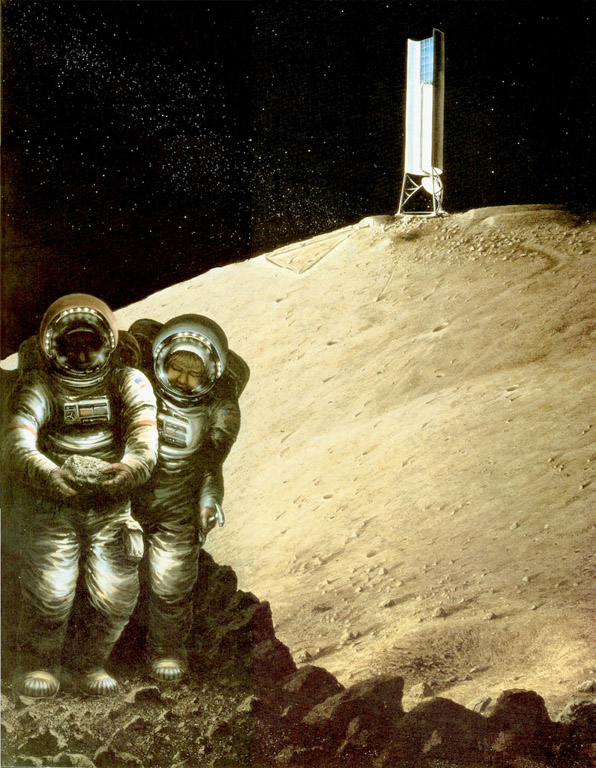
Image from 1992 Space Resources Book.
In the early 1960s scientific speculation began that cometary ices might be a frozen resource at the lunar poles. Results from Clementine and especially Lunar Prospector strengthen that suggestion but don’t prove it. However, there is one very certain resource at the poles - continuous solar energy. This painting, recently brought to light by Dave McKay of NASA Johnson Space Center, is from a 1992 NASA book and depicts how a tower with solar cells could collect solar energy from a high spot near either pole. I don’t have access to the book so can only guess about the details of the painting. Presumably the tower rotates in 27 days to follow the Sun, and perhaps the hemispherical structure at the bottom of the tower is an antenna to send energy (in the form of microwaves) to an equatorial orbiting satellite that could relay power to where ever it is needed on the Moon. I have no idea what the outlined triangular patch is near the base of the tower, nor the three linear mounds that presumably protect something under a layer of regolith. The two astronauts (or maybe cosmonauts or yuhangyuans or ?) have lights ringing their helmets so they can explore the permanently dark crater floors near the poles. The rock they study - I would think it would be raised closer the their eyes - has a nice impact pit, but the tiny hammer carried by the other astronaut looks inadequate to break the rock open. The odd pose of these two polarnauts suggests that one is female and one male, but it doesn’t matter - I just want to see people back up there!
Technical Details:
This painting (artist unknown to me) was made in consultation with polar resource advocate Jim Burke and appeared in Space Resources Book (McKay, McKay, and Duke, editors; 1992, NASA SP509).
Related Links:
Rükl plates 4 or 73
Yesterday's LPOD: Little Magazines
Tomorrow's LPOD: Rays & Pits
COMMENTS?
Register, Log in, and join in the comments.



